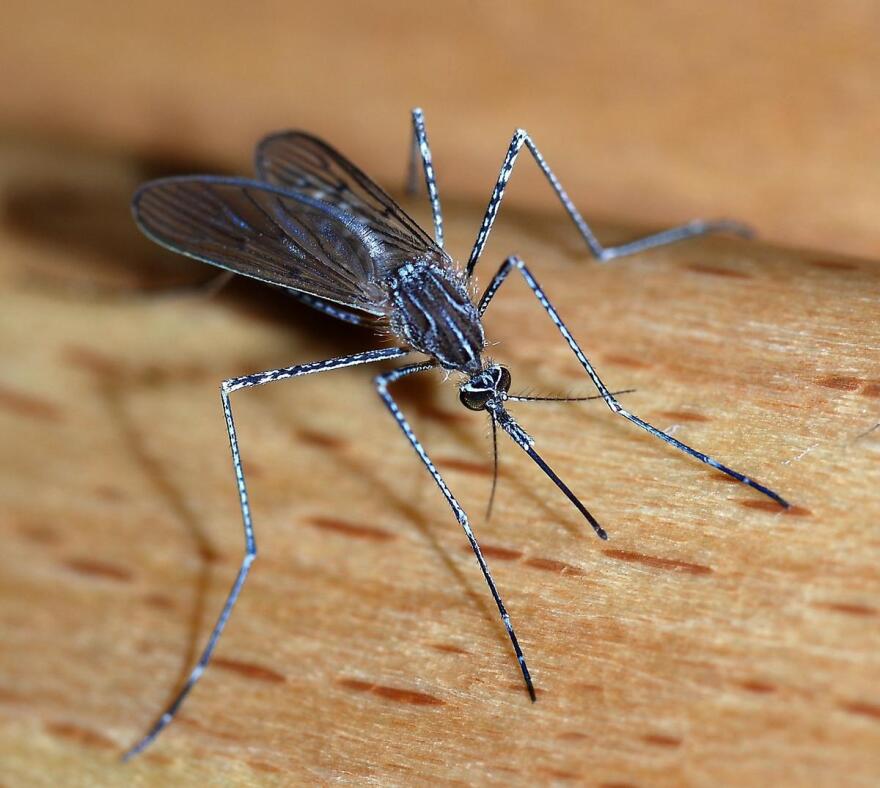It’s officially fall, and temperatures have turned cooler but one unwelcome part of summer continues to linger – and that’s the risk of the mosquito-borne EEE virus.
Massachusetts state officials this past week confirmed an eighth case of EEE in the Commonwealth, and one person died from the virus in August. There have also been cases – and fatalities - from EEE in Rhode Island, Connecticut, and Michigan.
While Triple E infections are rare, they can be deadly. And the risk will continue until there is a hard frost to kill off mosquitos. But that’s not necessarily the end of it. EEE-carrying culiseta mosquitos’ eggs can over-winter and hatch in the next season, according to Tonya Colpitts, Assistant Professor of Microbiology at Boston University.
“The cycle is maintained in nature between birds and bird-feeding mosquitoes, and it's thought that sometimes these cooler set of mosquitoes will bite an incidental feeding source such as a horse or a human and that's when they become infected,” said Colpitts.
They're known as a dead-end or incidental hosts for the Triple-E virus because a mosquito cannot pick up the virus from them.
Right now it’s not known what determines when there’s going to be a bad Triple E season. Colpitts said more research needs to go into it, but there are theories.
“It's thought that you need a rainy fall followed by a rainy late spring/early summer and then that August there may be an emergence of Triple E among mammals.”
So the more rain, the more mosquitoes you'll have. The greater number of of mosquitoes, the greater the transmission of Triple E in the natural cycle, and the greater chance of emergence into mammals.
There’s no vaccine for humans for this virus, but there is a vaccine for horses that’s quite effective.
“There was some research into a vaccine for humans but it sort of died down; died away. I think there's just not enough demand for that.”
However, her team is working on a transmission blocking vaccination strategy for other types of mosquito-borne-illnesses: Zika, yellow fever, and dengue fever. The strategy wouldn't work for Triple E, so right now, the best way to avoid Triple E, is to avoid getting bitten by mosquitos. Colpitts recommends wearing long sleeves and long pants outside, using insect repellant with DEET, avoiding going outside at dusk, and getting rid of standing water on your property.




